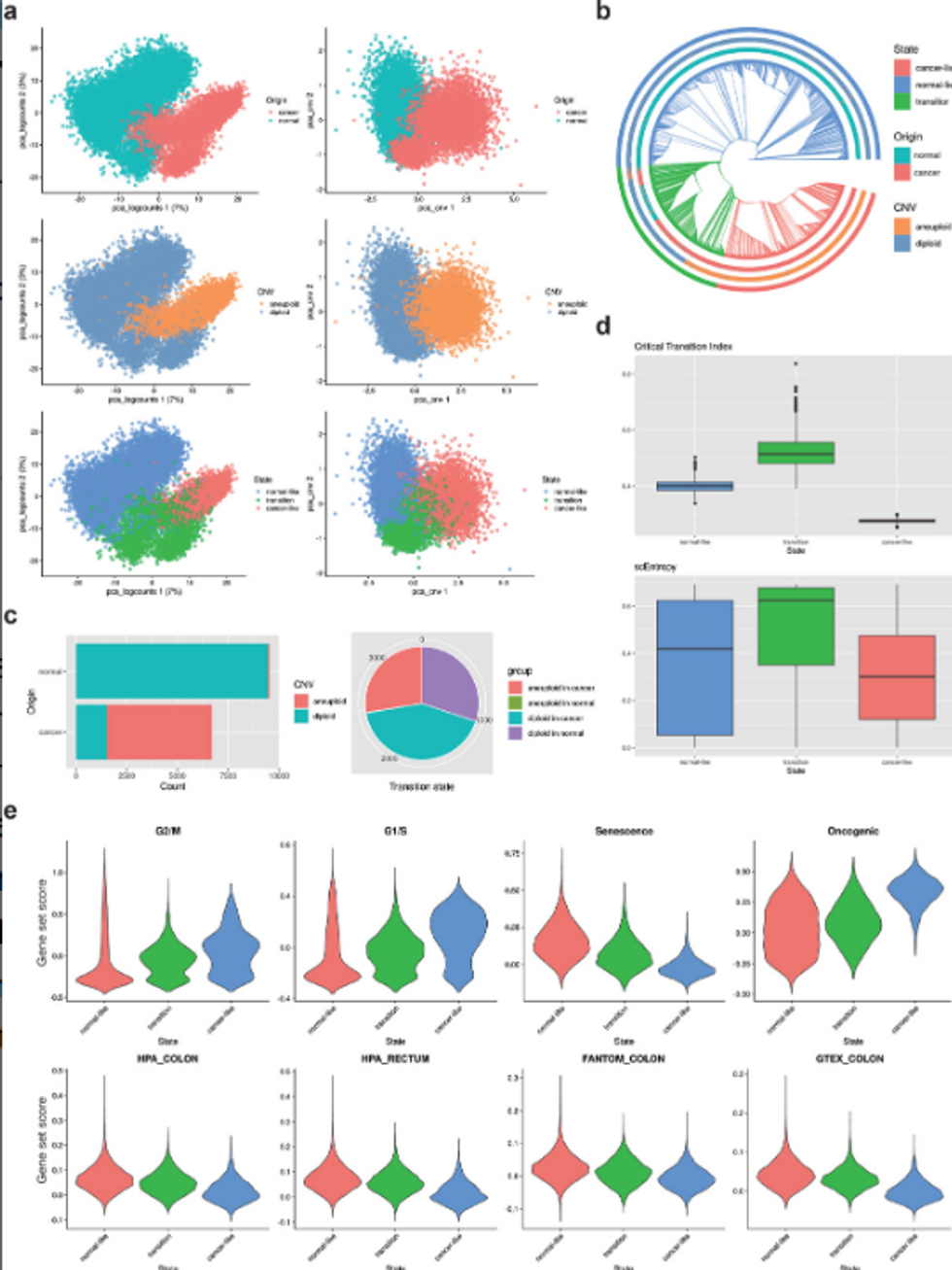Scientists have made a groundbreaking discovery of a molecular ‘switch’ that can transform cancer cells back into healthy cells, offering new hope for cancer treatment.
South Korean researchers have successfully identified a way to revert cancerous cells to a healthier stage by activating specific molecular mechanisms.
The breakthrough allows scientists to intervene at a crucial moment before normal cells permanently transform into diseased cells, effectively halting cancer progression.
“This finding provides a new approach for cancer treatment by rewiring cancer cells rather than eliminating them,” said Dr Tiffany Troso-Sandoval, a retired oncologist formerly at Memorial Sloan Kettering Cancer Center.

Researchers identified a crucial window where cells enter this hybrid state, presenting an opportunity for intervention
Dongkwan Shin, et al
To better understand this breakthrough, Dr Troso-Sandoval offers a simple comparison to boiling water at 100C.
“There’s a brief moment when water is neither fully liquid or fully steam,” she explains, drawing a parallel to how cancer cells develop.
This critical transition state represents a short window where cells possess both healthy and cancerous characteristics.
Cancer development occurs gradually as DNA changes build up in healthy cells over time, altering their function.
MORE LIKE THIS:
During this process, researchers identified a crucial window where cells enter this hybrid state, presenting an opportunity for intervention.
Traditional cancer treatments have focused on either surgically removing cancer cells or destroying them through radiation and chemotherapy.
This new discovery presents a third approach that could allow patients to recover their healthy cells instead of destroying them.
The method could lead to less toxic therapies compared to radiation and chemotherapy, which damage both healthy and cancerous cells throughout the body.
Current treatments often result in severe side effects and can lead to the development of additional diseases, including new cancers.
The breakthrough could be particularly significant for high-risk patients, including those with family history of cancer or regular exposure to carcinogens like cigarette smoke.
The research team tested their findings through experiments using lab-grown mini-tumours, or organoids, created from colon cancer cells.
Through molecular cell experiments, they identified a specific enzyme that was preventing the breakdown of cancer-related proteins.

Current treatments often result in severe side effects and can lead to the development of additional diseases
GETTY
This enzyme allowed the proteins to continue fuelling tumour growth unchecked.
By successfully blocking this enzyme, the researchers observed that the organoids not only stopped growing but reverted to a healthy state with normal functioning.
The team has published their groundbreaking findings in the journal Advanced Science.
Professor Kwang-Hyun Cho, a co-author from the Korea Advanced Institute of Science and Technology, highlighted the significance of their findings.
“This study has revealed in detail, at the genetic network level, what changes occur within cells behind the process of cancer development, which has been considered a mystery until now,” he said.
“This is the first study to reveal that an important clue that can revert the fate of [tumor development] is hidden at this very moment of change,” Cho added.
While the concept of cell differentiation is not new, this specific mechanism and its application in cancer treatment represents a novel breakthrough.
The discovery could lead to more personalised medicine approaches, according to Dr Troso-Sandoval.